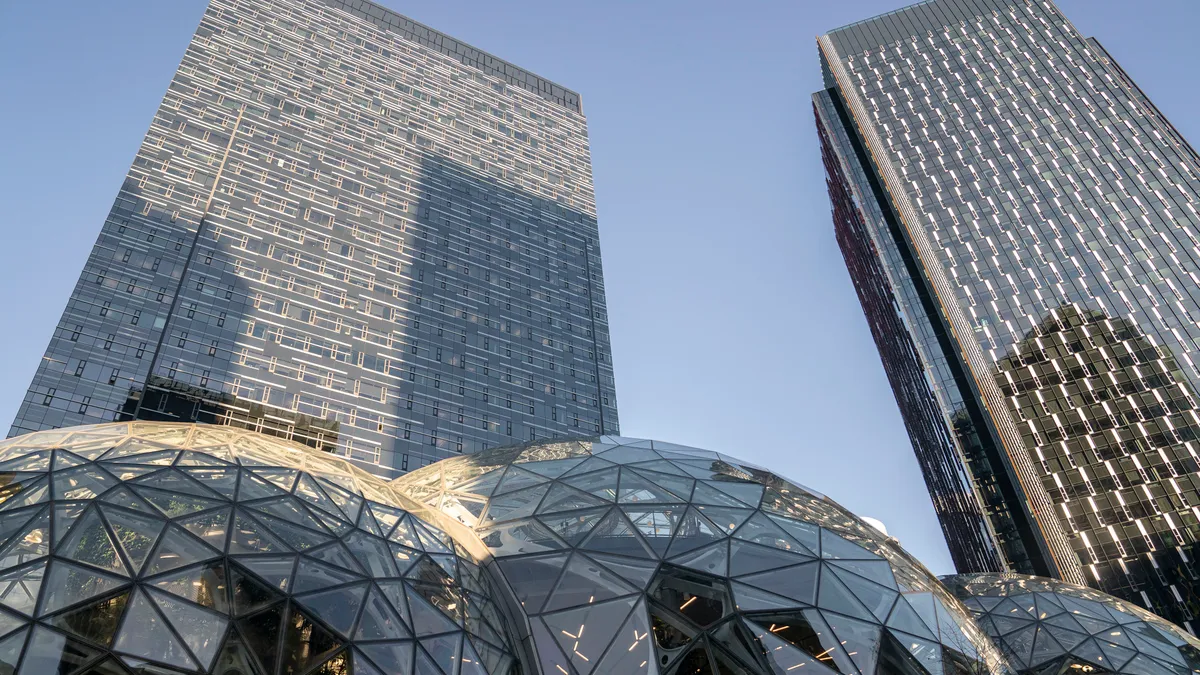Dive Brief:
- The U.S. Department of Energy is giving 19 state and local governments a total of over $240 million to adopt and implement new and “innovative” building codes that increase energy efficiency, according to a news release issued Tuesday.
- The communities getting the Inflation Reduction Act-supported grants will also receive direct technical assistance. States and localities interested in applying for the second round of funding administered through DOE’s Office of State and Community Energy Programs can do so until Sept. 13.
- Many of the selected cities will use the funds to develop and implement building performance standards, which require existing buildings to reduce their greenhouse gas emissions or energy use over time. Advocates have described these emerging rules as a key climate policy.
Dive Insight:
The Biden administration has been an advocate of stronger state and local energy-related building codes. In 2022, President Joe Biden launched the National Building Performance Standards Coalition, a group of state and local governments that committed to implementing BPS in their jurisdictions.
These standards also showed up as a priority in the DOE’s federal blueprint to decarbonize the building sector, which was released in April. Thirteen U.S. cities have a BPS in place, according to a July report from JLL. By 2026, that number could balloon to at least 40 cities, the report predicts.
Cities are taking different approaches to using the federal grants announced Tuesday. In Ohio, four cities awarded a collective $10 million will develop BPS policies along with a “one-stop shop” to connect building owners with financing solutions, training and incentives, according to the DOE.
Seattle, which has a BPS and got $17.2 million in grants, will create a similar “customer support hub” to connect building owners with individualized assistance and other financial support, according to a city news release. The Pacific Northwest city will also support workforce development related to its BPS.
“Securing this Department of Energy grant is a tremendous win for Seattle’s multifamily and commercial property owners,” Daniel Poppe, executive director of Seattle 2030 District, said in a statement. Seattle 2030 District is an organization of real estate owners, architects, engineers, contractors and community partners that advocates for energy efficiency in buildings.
New York City will use $19.9 million to try to increase BPS compliance support for multifamily buildings, especially in disadvantaged communities, according to the DOE.
Since landlords may attempt to recoup the cost of energy efficiency upgrades with higher rent, affordable housing can pose challenges when it comes to implementing BPS, according to a January report by the nonprofit research organization American Council for an Energy-Efficient Economy.
The report advises jurisdictions to pair standards with increased financial and technical assistance for affordable housing owners. It also suggests that cities and states devise fine structures for noncompliance that don’t significantly impact affordable housing or that account for investments made in an attempt to comply with standards.
Among the other cities receiving grants are Philadelphia; Baltimore; San Francisco; Kansas City, Missouri; and Evanston, Illinois.












